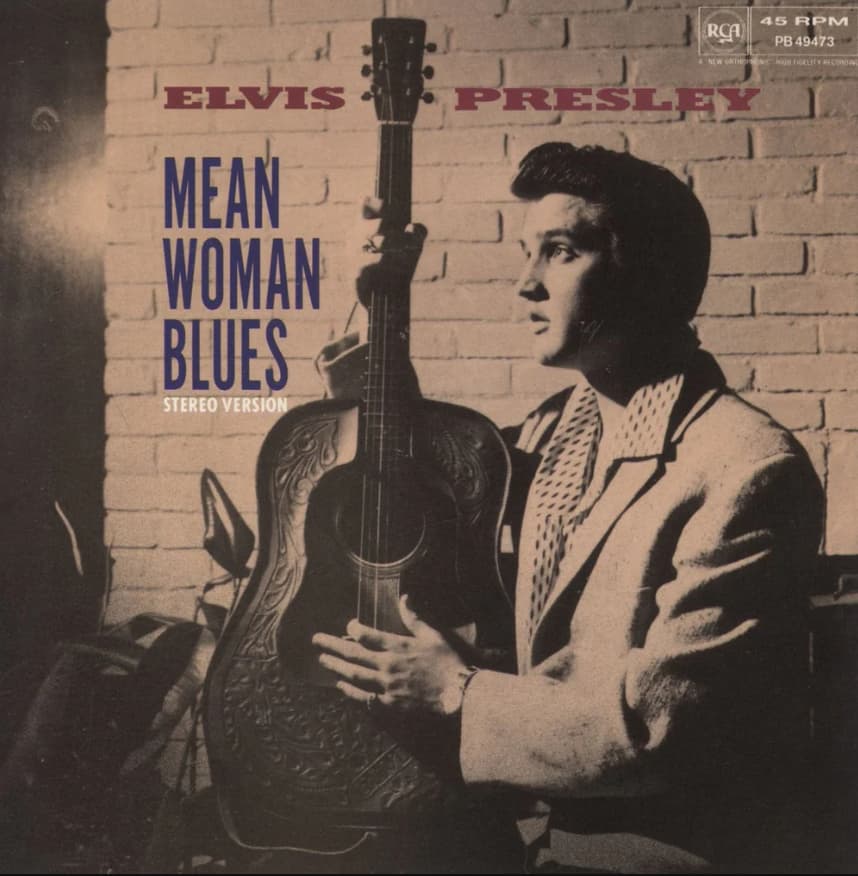
The Ageless Echo of a Rock and Roll Rant
For a generation that came of age with the swagger and shake of early rock and roll, few anthems resonate as powerfully as Elvis Presley’s raw and rollicking “Mean Woman Blues.” It’s a track that encapsulates the fiery spirit of the 1950s, a time when music was a visceral, untamed force. Released in 1957, this was more than just a song; it was a defiant declaration of independence from heartbreak. Its inclusion on the soundtrack for the film “Loving You” cemented its place in cinematic and musical history. While the film’s title might suggest tender romance, “Mean Woman Blues” offered a sharp, electric contrast, painting a vivid picture of a man pushed to his emotional limit by a cruel lover. This song became an instant favorite, not just for its blistering tempo but for its universal theme of a love gone sour.
The story behind the song is one of collaboration and creative alchemy. Penned by the prolific songwriter Claude Demetrius, the lyrics found their perfect vessel in Elvis’s commanding voice. Demetrius, who also co-wrote some of Elvis’s other hits, including “Hard Headed Woman,” had a knack for crafting narratives that were both simple and deeply relatable. When Elvis stepped into the studio to record it, he didn’t just sing the words; he embodied them. He imbued the track with a palpable sense of frustration and kinetic energy, channeling the very essence of a man wronged. The recording was a masterclass in controlled chaos, with Elvis’s signature vocal flourishes—the growls, the stutters, the sheer power—propelling the song forward with relentless momentum.
The chart performance of “Mean Woman Blues” speaks volumes about its impact. Released as the B-side to the more ballad-oriented “Teddy Bear,” the song proved to be a formidable contender in its own right. It reached a peak position of No. 11 on the Billboard Hot 100, a remarkable feat for a B-side and a testament to its raw appeal. This dual success highlighted Elvis’s versatility, showcasing his ability to pivot from a soft, sentimental crooner to a leather-clad rock and roll firebrand. The two songs, like two sides of the same coin, demonstrated the breadth of his artistry and solidified his status as a musical icon who could appeal to both the heart and the hips.
But the true meaning of “Mean Woman Blues” lies beyond its chart numbers or its cinematic debut. It’s a defiant roar against emotional manipulation, a candid expression of the pain and anger that comes with a toxic relationship. The lyrics, while straightforward, capture the bitter irony of being chained to someone you can’t stand to be around. Lines like “She’s a mean woman, but she’s the one I love” articulate a complex emotional conflict—the maddening allure of a love that hurts. It’s a song that acknowledges the deep, irrational hold a person can have over another, even when that person brings nothing but misery. For those who grew up listening to this track on crackling vinyl or a grainy jukebox, it wasn’t just a song about a “mean woman”; it was a soundtrack to their own youthful heartbreaks, a shared experience of love’s tumultuous and often painful journey. It serves as a reminder that even the King of Rock and Roll wasn’t immune to the complexities of the human heart. It’s a classic that, even after all these years, retains its edge and its emotional truth.